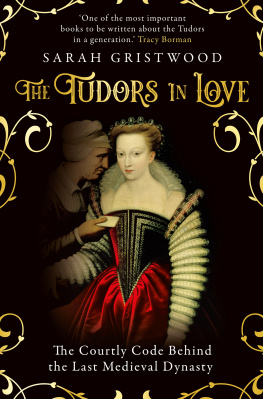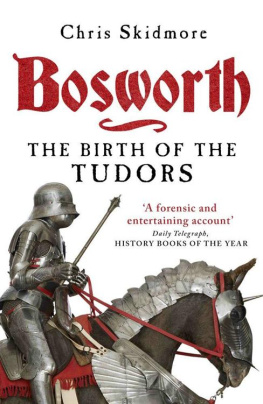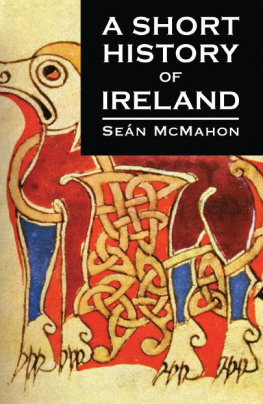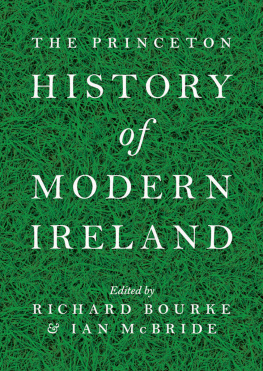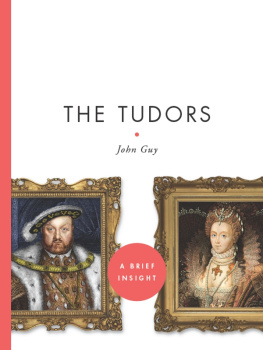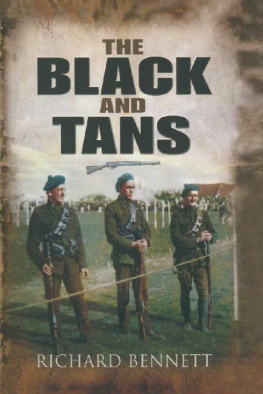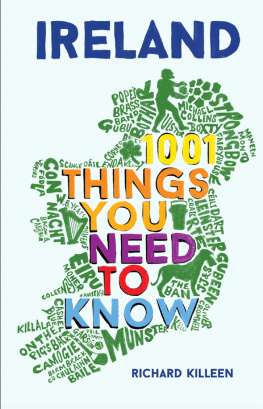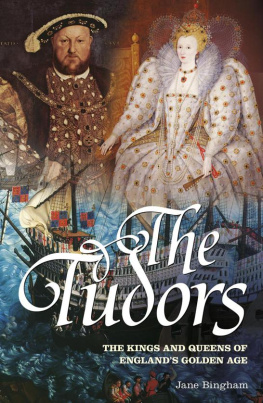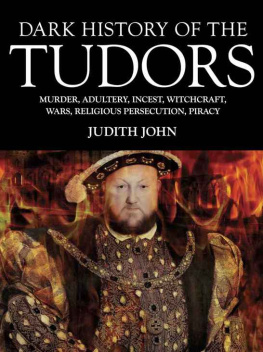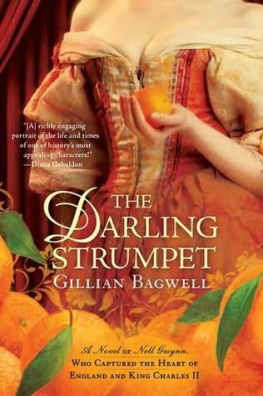PREFACE.
Irish policy, said Mr. Disraeli in the House of Commons, is Irish history, and I have no faith in any statesman, who attempts to remedy the evils of Ireland, who is either ignorant of the past or who will not take lessons from it. This is most true, and history, if it is to be of any use, should be written for instruction, and not merely for the confirmation of existing prejudices. This is especially so in the present case, for, as Sir George Stanley told Cecil in 1565, the practises of Ireland be great, and not understood to all men that seem to have knowledge thereof. The writer who enters the arena as an advocate may produce an interesting party pamphlet, but he will hardly make the world either wiser or better. The historians true office is that of the judge, whose duty it is to marshal all the material facts with just so much of comment as may enable his hearers to give them their due weight. The reading public is the jury.
Starting with this conception of the task before me, I have not attempted to please any party or school. The history of Ireland is at the best a sad one; but its study, if it be really studied for the truths sake, can hardly fail to make men more tolerant. In Ireland, as in other countries, a purely Celtic population was unable to resist the impact of the Teutonic race. First came the pagan Northmen, with power to ruin, but without power to reconstruct. Then followed the Anglo-Normans, seeking for lands and lordships, but seeking them under the patronage of the Catholic Church. For a time it seemed as though the conquest would be complete; but the colony proved too weak for its work, and the mail-clad knights failed almost as completely as the Scandinavian corsairs.
The main cause of this second failure was the neglect or jealousy of the kings. They feared the growth of an independent power within sight of the English shore, and they had neither means nor inclination to do the work of government themselves. Little gain and less glory were to be had in Ireland, and Scotch, Welsh, or Continental politics engrossed their attention in turn. They weakened the colony, partly of set purpose, and partly by drawing men and supplies from thence. In short, they were absentees; and, to use an expression which has gained currency in modern times, they were generally content to look upon Ireland as a mere drawfarm.
The Wars of the Roses almost completed the ruin of the work which Henry II. had begun. For a moment it seemed as if the colony was about to assert its independence. But this could not have been done without an understanding with the native race, and it does not appear that any such understanding was possible. The upshot was that Yorkist and Lancastrian parties were formed in Ireland, that the colony was thus still further weakened, and that the English language and power seemed on the point of disappearing altogether.
The throne of Henry VIII. was erected on the ruins of medival feudalism, and guarded by a nation which longed for rest, and which saw no hope but in a strong monarchy. The King saw that he had duties in Ireland. Utterly unscrupulous where his own passions were concerned, the idea of a patriot King was not altogether strange to him. Irish chiefs were encouraged to visit his court, and were allowed to bask in the sunshine of royal favour; and it is conceivable that the Defender of the Faith, had he continued to defend it in the original sense, might have ended by attaching the native Irish to the Crown. By respecting for a time their tribal laws, by making one chief an earl and another a knight, by mediating in their quarrels, and by attending to their physical and spiritual wants, a Catholic Tudor might possibly have succeeded where Anglican and Plantagenet had failed. The revolution in religion changed everything, and out of it grew what many regard as the insoluble Irish question.
Henry II. had found Ireland in the hands of a Celtic people, for the intermixture of Scandinavian blood was slight and partial. Henry VIII. found it inhabited by a mixed race. From the beginning there had been rivalry and ill-feeling between men of English blood born in Ireland, and those of English birth who were sent over as officials or who went over as adventurers. During the fifteenth century England did nothing to preserve the ties of kinship, and the Celtic reaction tended to swallow up the interlopers. The degenerate English proverbially became more Irish than the Irish themselves, but the distinction would scarcely have been so nearly obliterated had it not been for the change in religion. The nobles of the Pale, the burghers of the walled towns, and the lawyers in Dublin were equally disinclined to accept the new model. Neither Irish chieftains nor Anglo-Irish lords found much difficulty in acknowledging Henrys supremacy both in Church and State; but further than that they would not go. The people did not go so far, and, in the words of the annalists, regarded the Reformation simply as a heresy and new error.
Religion itself was at an extremely low ebb, and only the friars preserved the memory of better days. Henry may have imagined that he could lead the people through the bishops and other dignitaries: if so, he was entirely mistaken. The friars defied his power, and the hearts of the poor were with them. In Ireland, at least, it was Rome that undertook the work of popular reformation. The Franciscans and Jesuits endured cold and hunger, bonds and death, while courtly prelates neglected their duties or were distinguished from lay magnates only by the more systematic nature of their oppressions. And thus, as the hatred of England daily deepened, the attachment of the Irish to Rome became daily closer. Every effort of Henry to conciliate them was frustrated by their spiritual guides, who urged with perfect truth that he was an adulterer, a tyrant, and a man of blood. Holding such cards as these, the friars could hardly lose the game, and they had little difficulty in proving to willing ears that the Kings ancestors received Ireland from the Pope, and that his apostasy had placed him in the position of a defaulting vassal.
Henrys vacillations and the early deaths of Edward and Mary for a time obscured the true nature of the contest, but it became apparent in Elizabeths time. She was an excommunicated Queen. From a Catholic point of view she was clearly illegitimate. Many English Catholics ignored all this and served her well and truly, but those who carried dogmas to their logical conclusions flocked to the enemys camp. Spain, Belgium, and Italy were filled with English refugees, who were willing enough that the Queen should be hurt in Ireland, since England was beyond their reach. But even here national antipathies were visible, and Irish suitors for Spanish help came constantly into collision with Englishmen bent upon the same errand.
Desmond, Shane ONeill, and Hugh ONeill seem to have cared very little for religion themselves. The first was a tool of Rome; the two latter rather made the Church subservient to their own ambition. But in these cases, and in a hundred others of less importance, the religious feeling of the people was always steadily opposed to the English Crown. Elizabeth was by nature no persecutor, yet she persecuted. Her advisers always maintained, and her apologists may still maintain, that in hanging a Campion or torturing an OHurley she did not meddle with freedom of conscience, but only punished those who were plotting against her crown. The Catholics, on the other hand, could plead that they had done nothing worthy of death or of bonds, nor against lawful authority, and that they suffered for conscience sake. And the Continental nations, who were mainly Catholic, sided on the whole with the refugees. Ireland, it is true, was only a pawn in their game, and Philip II. was probably wrong in not making her much more. At Cork or Galway the Armada might have met with scarcely any resistance, and a successful descent would have taxed Elizabeths resources to the utmost.



